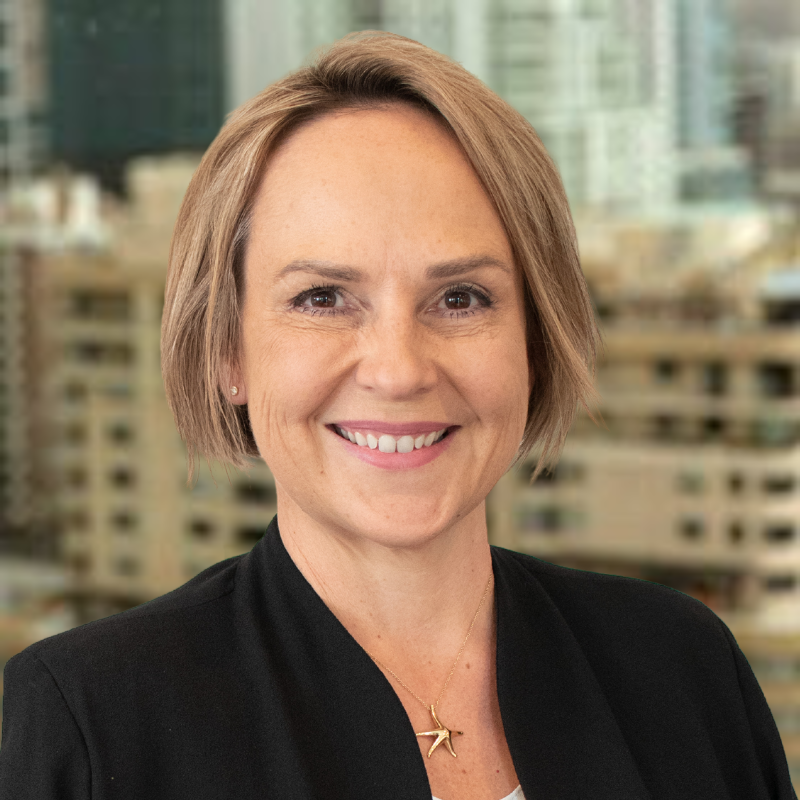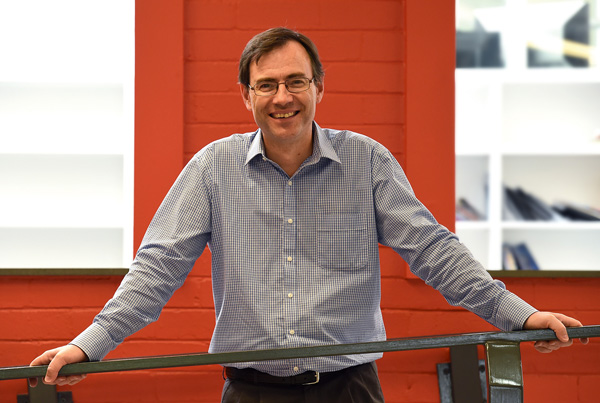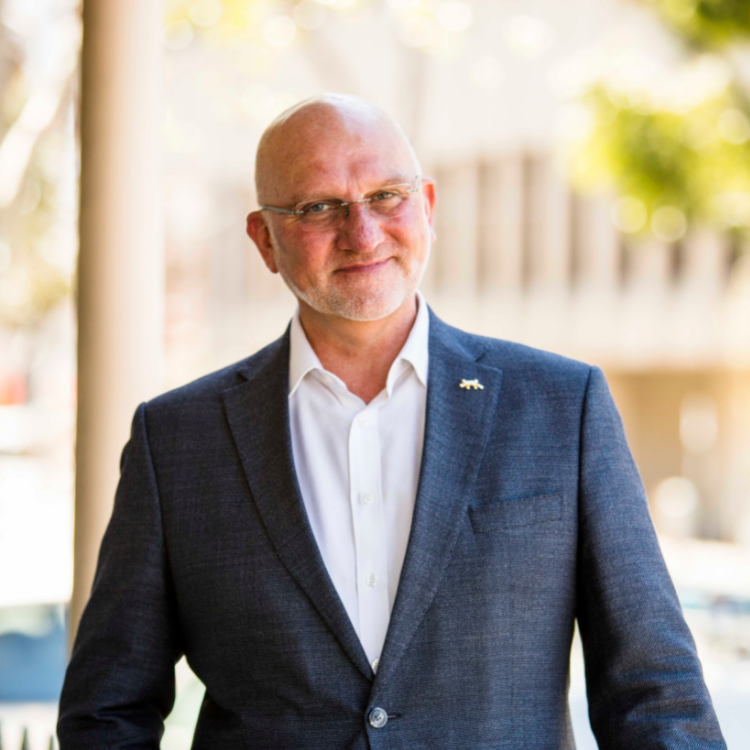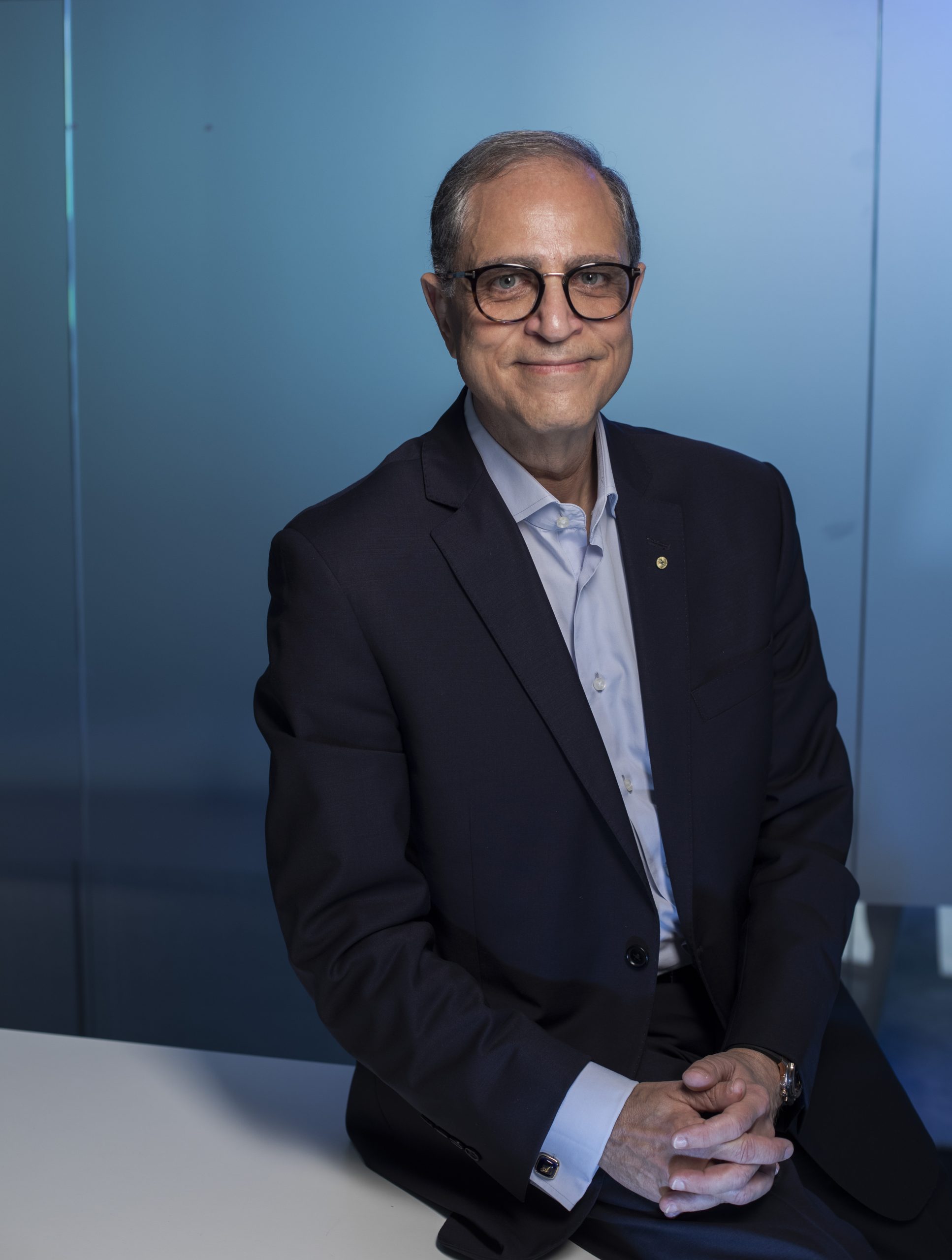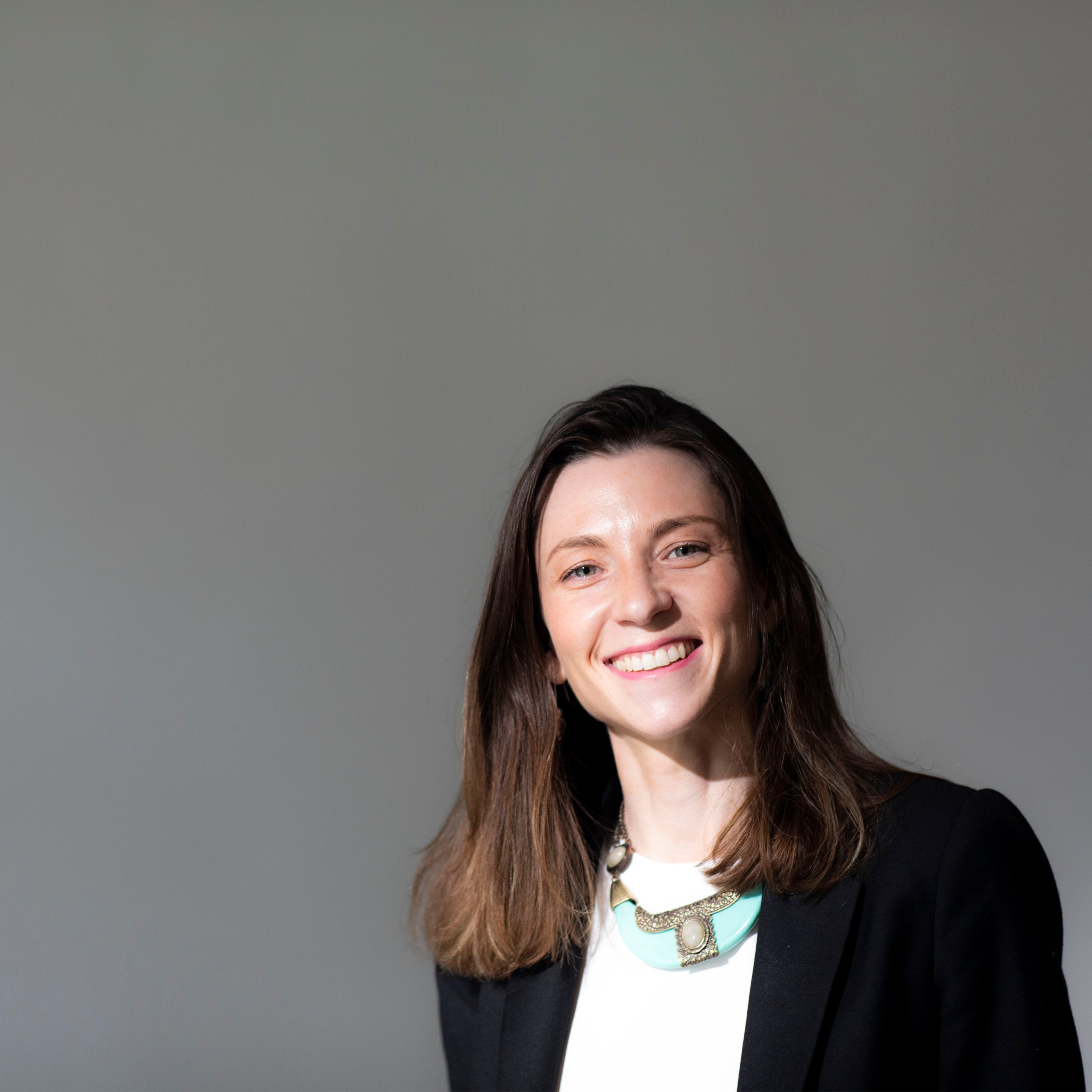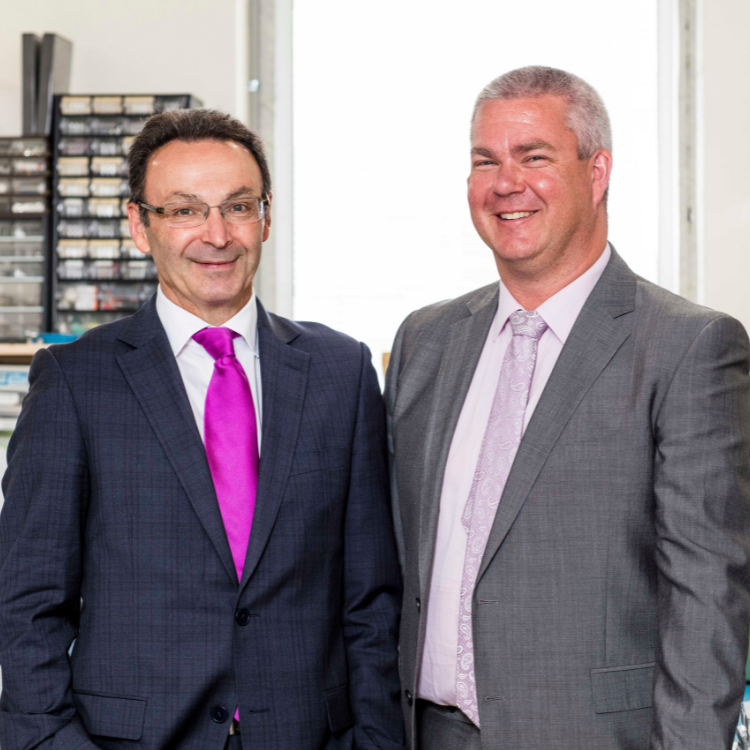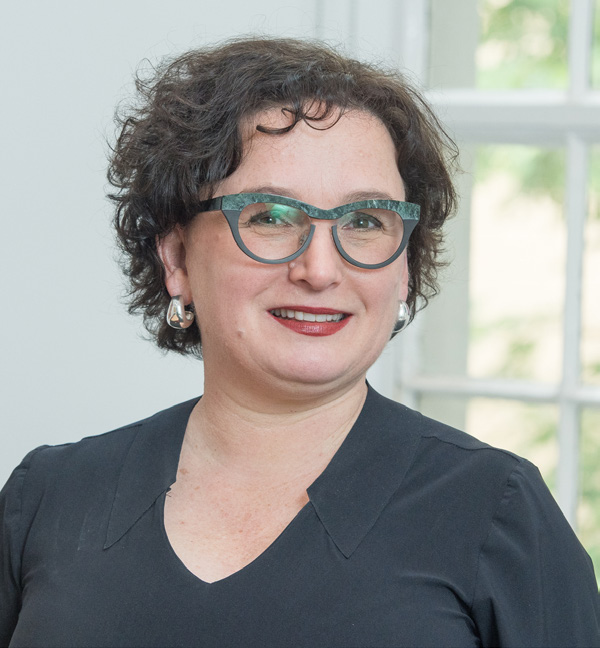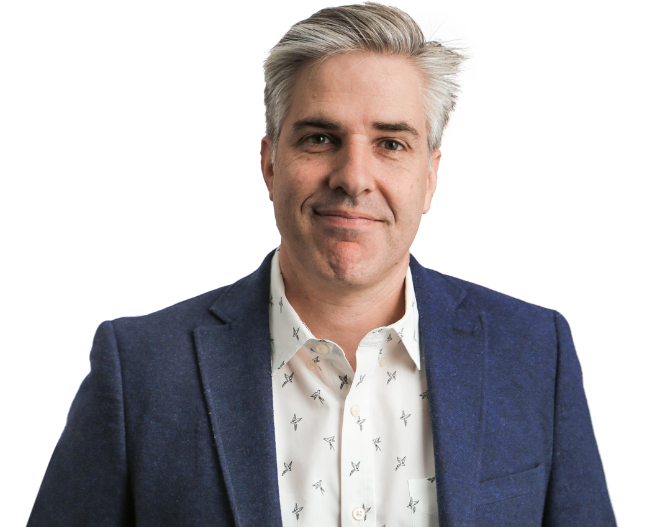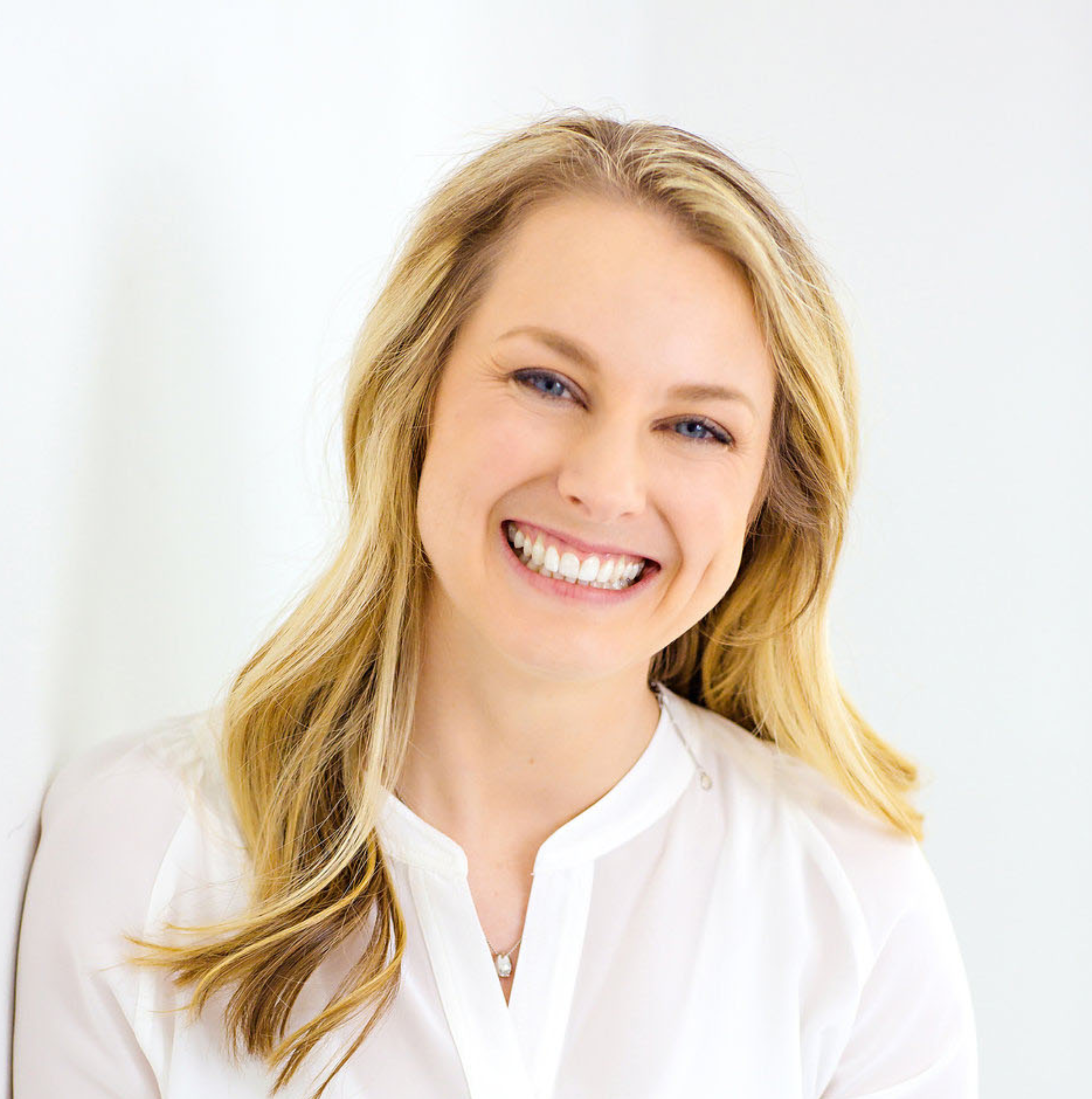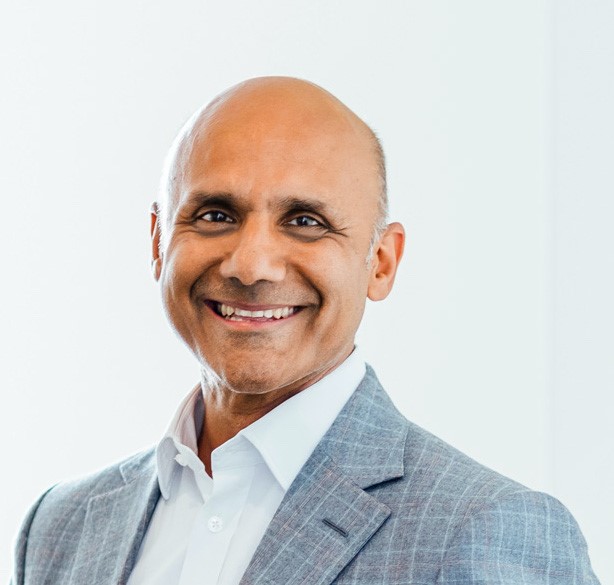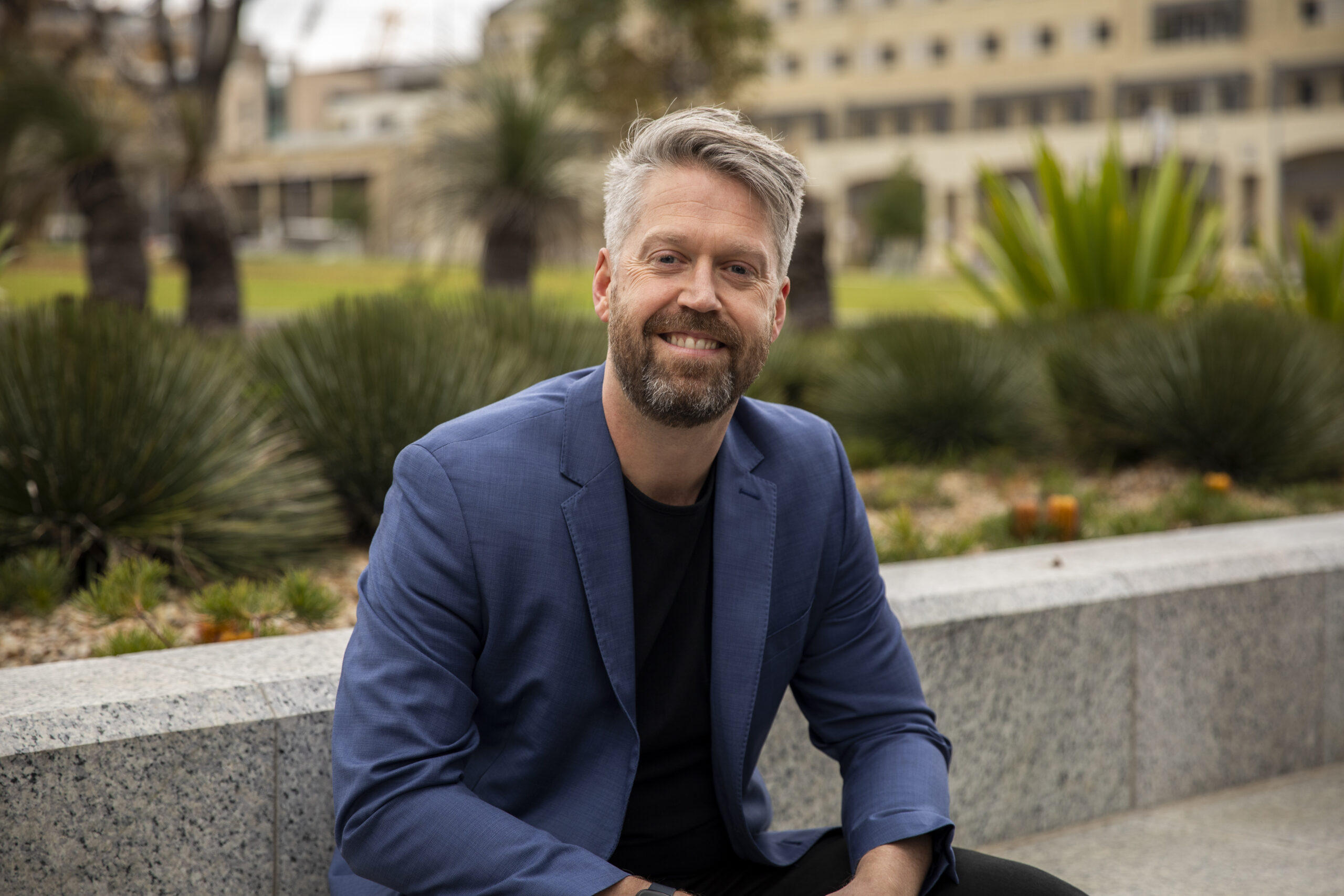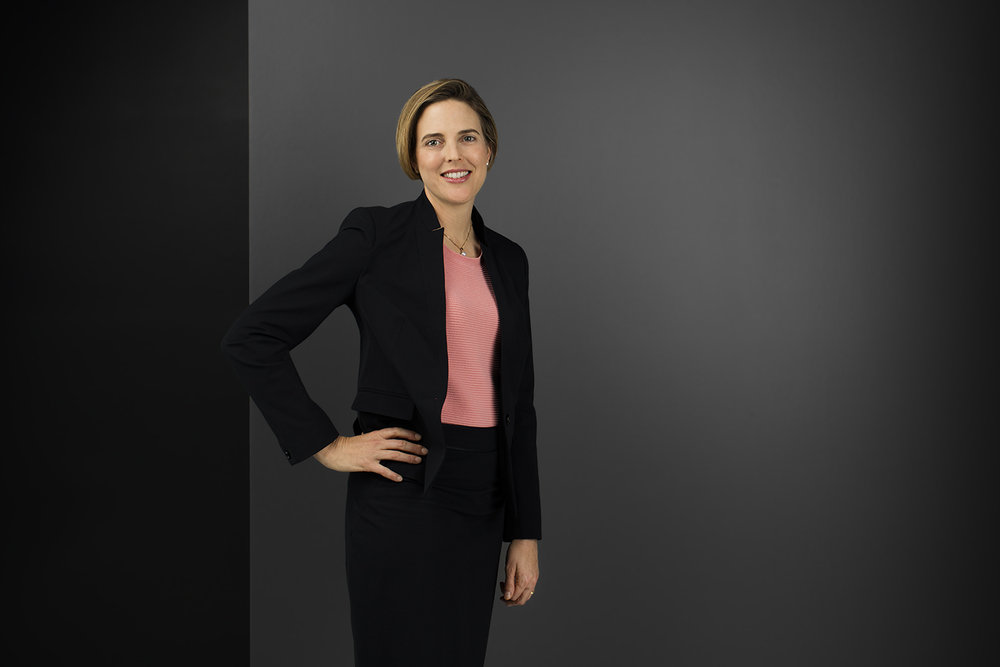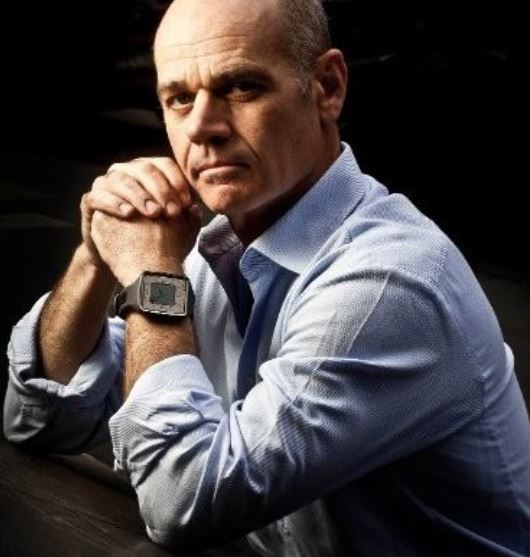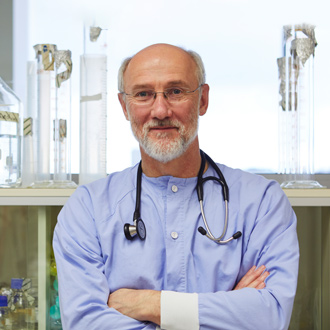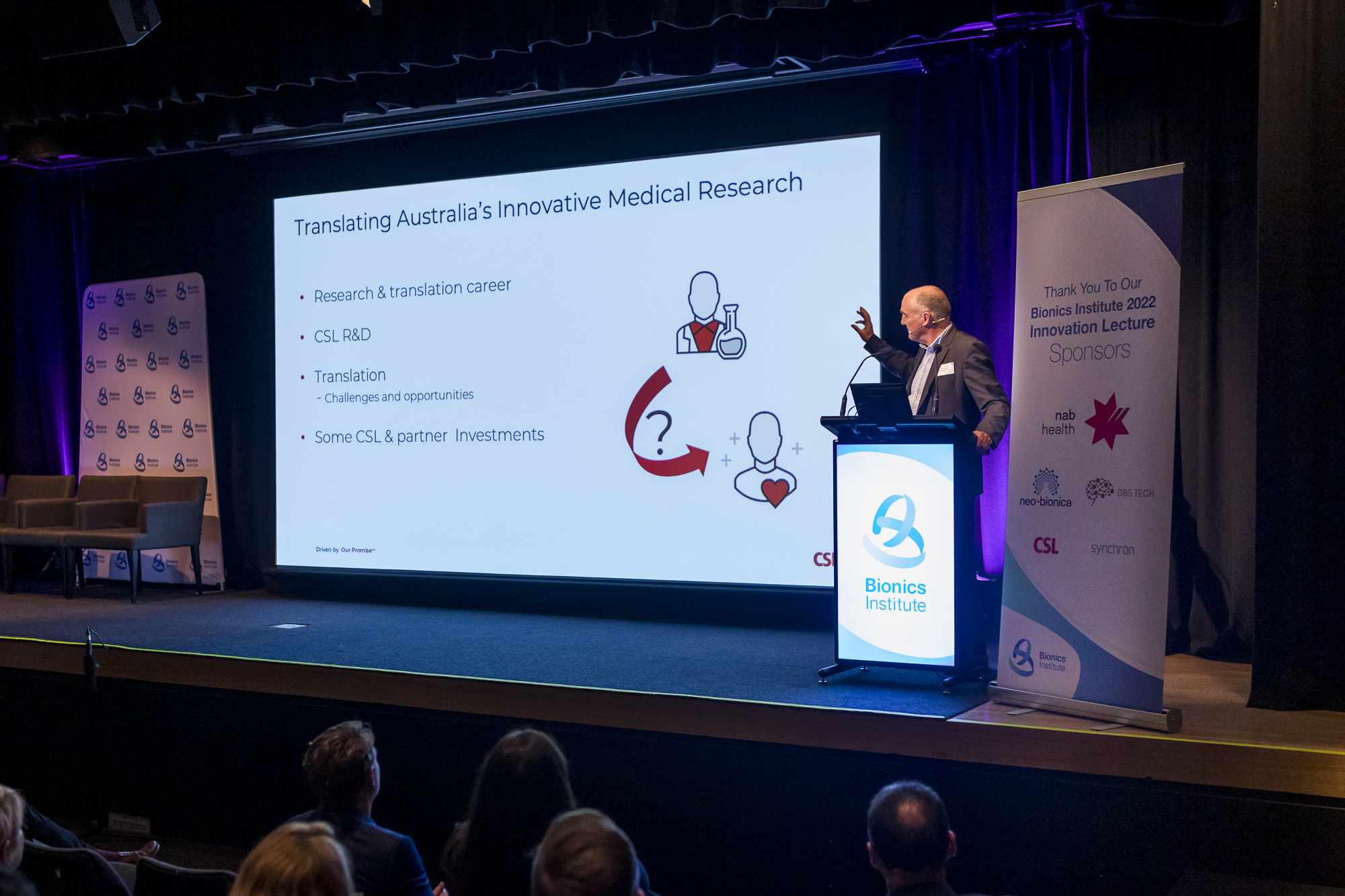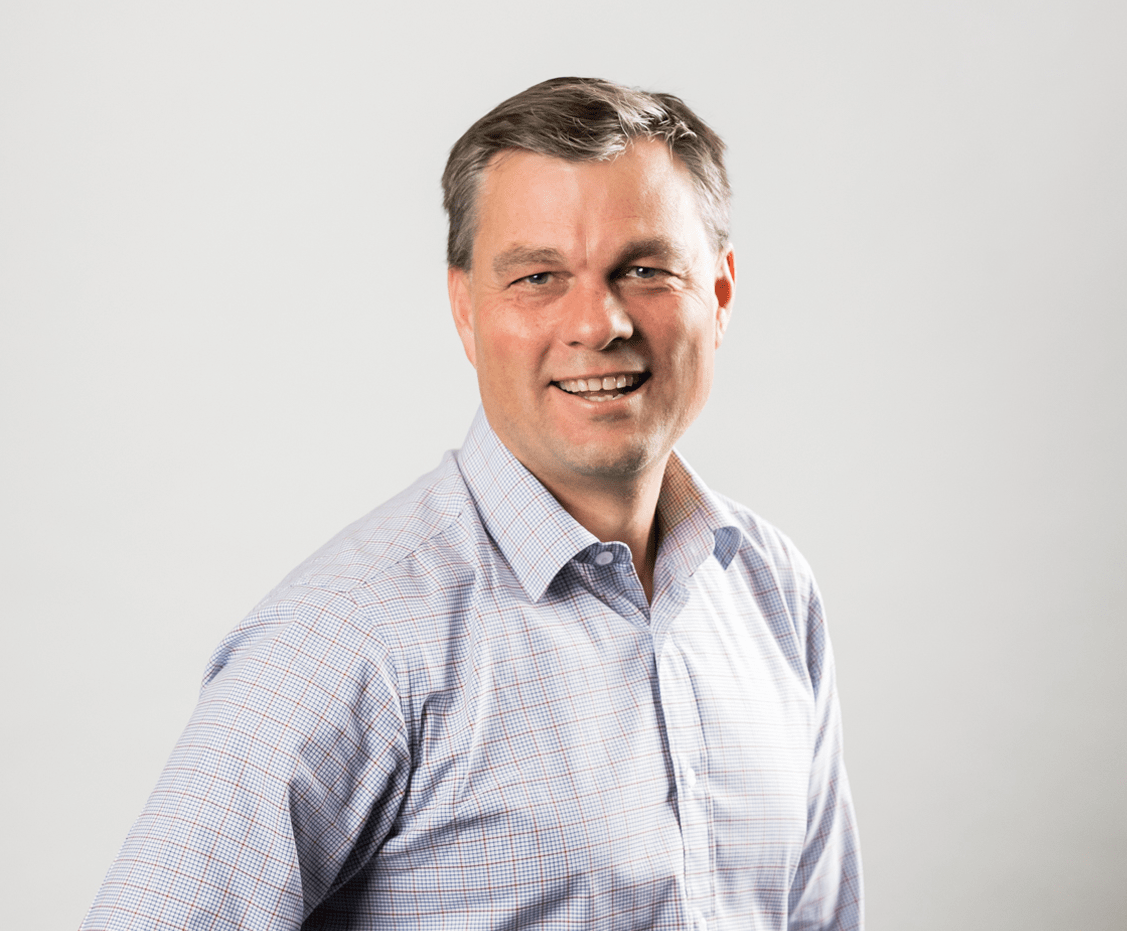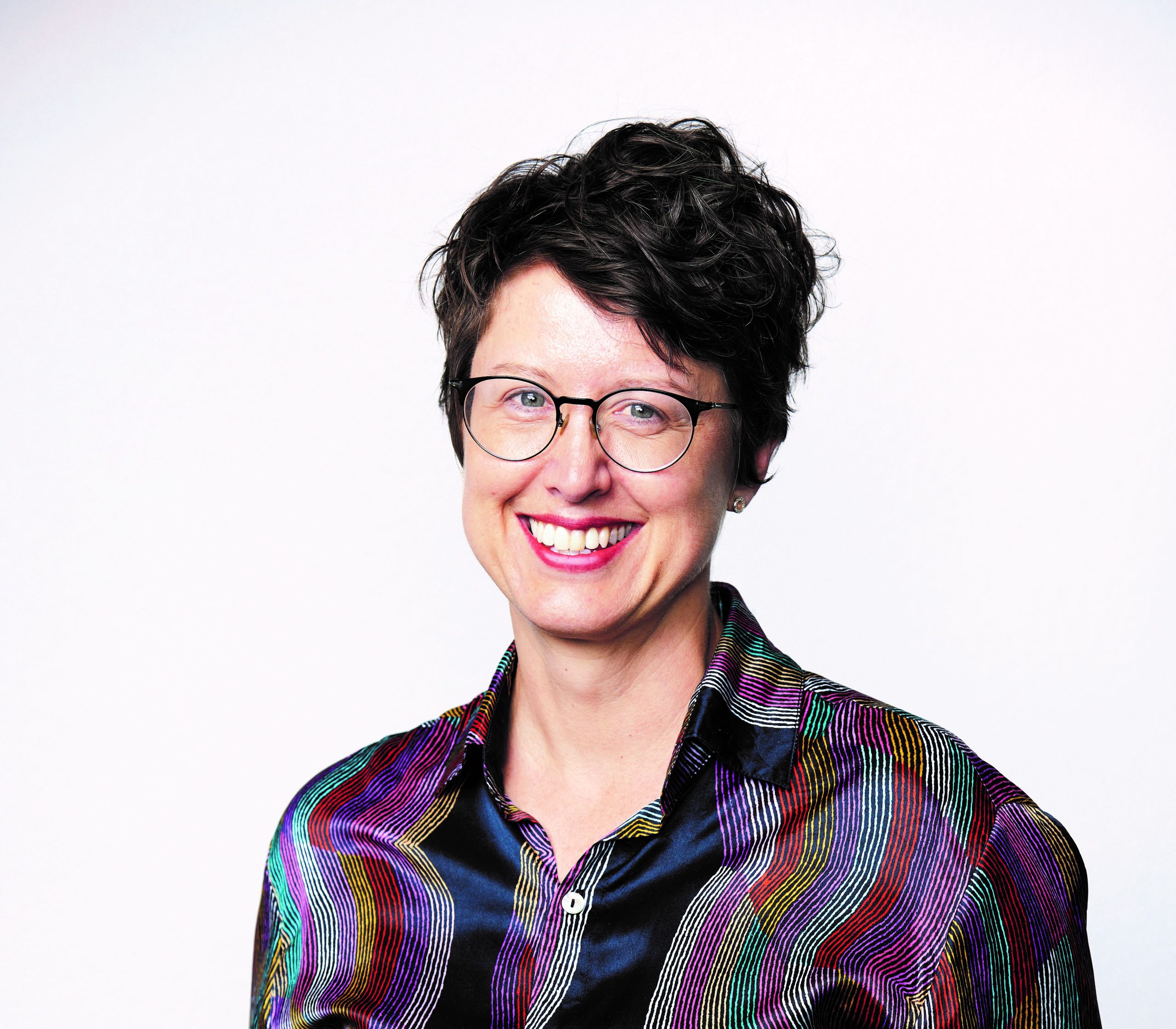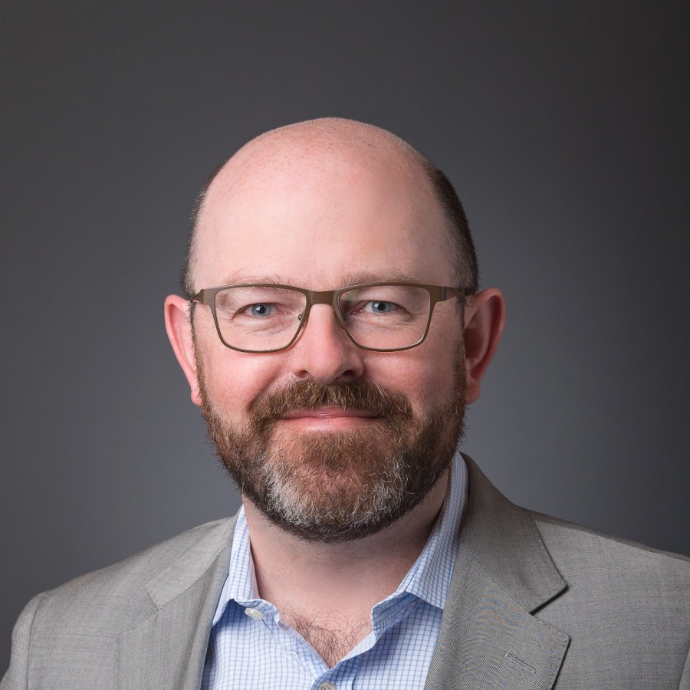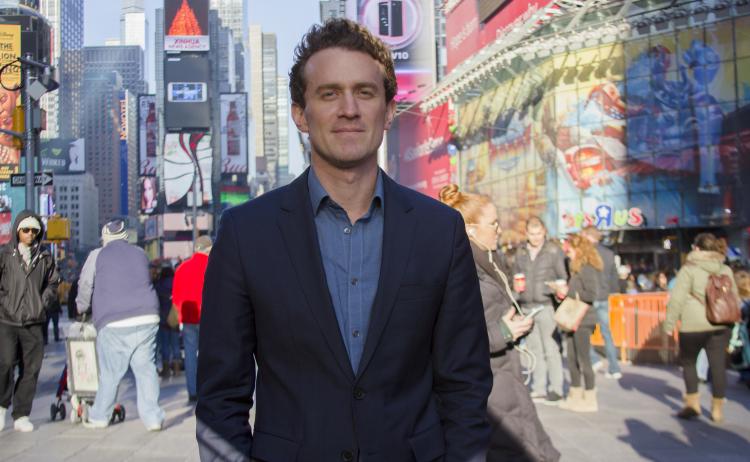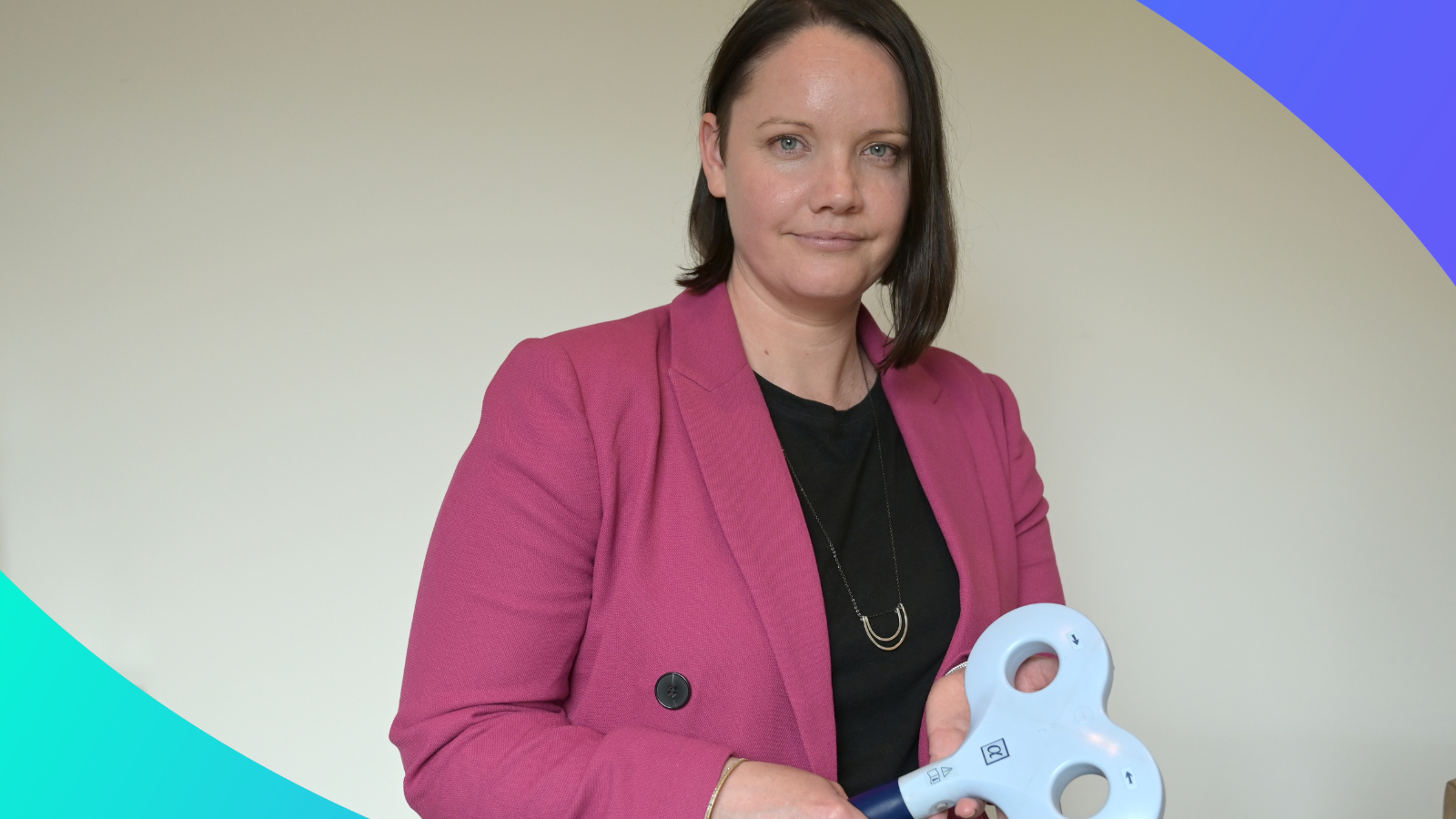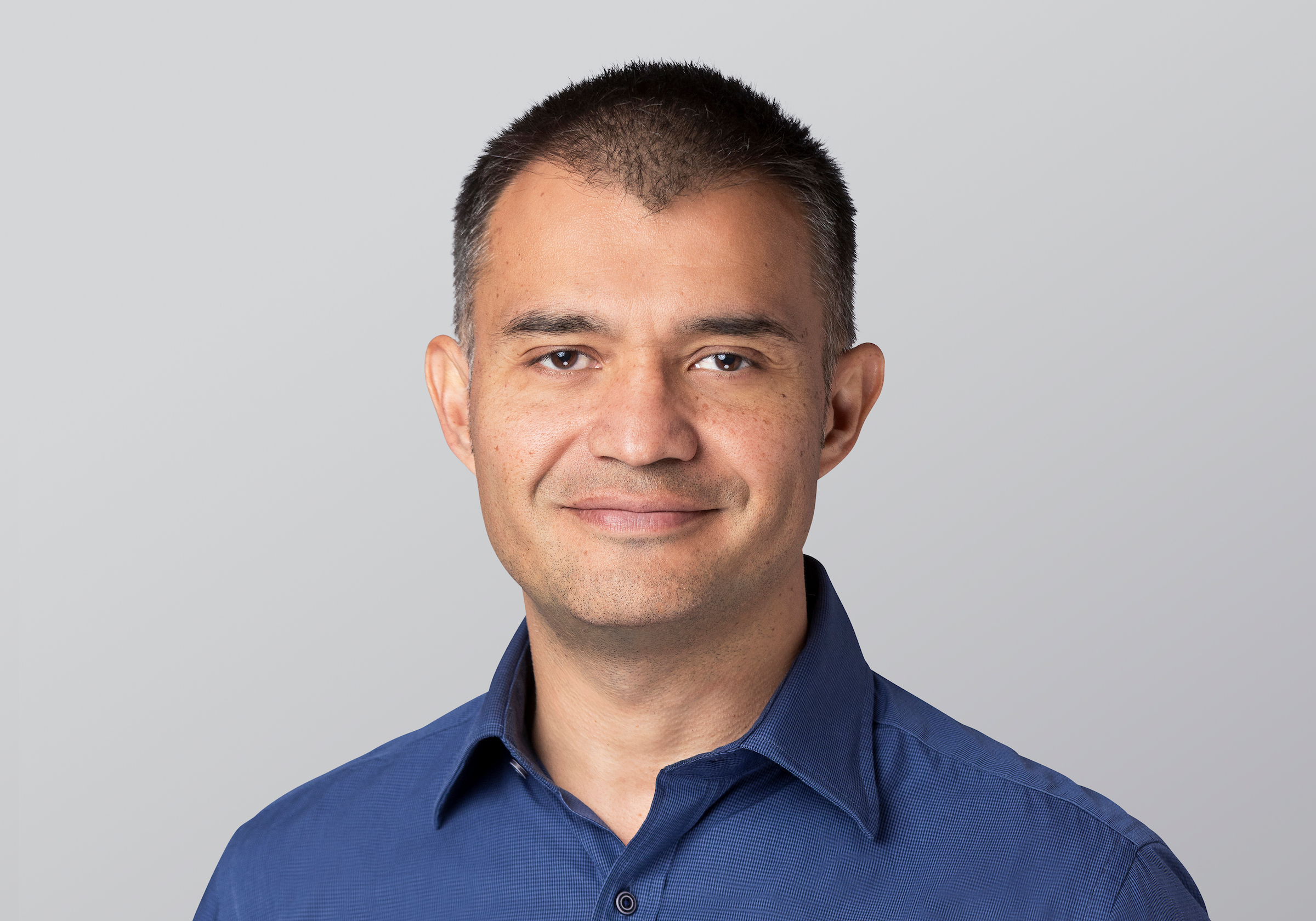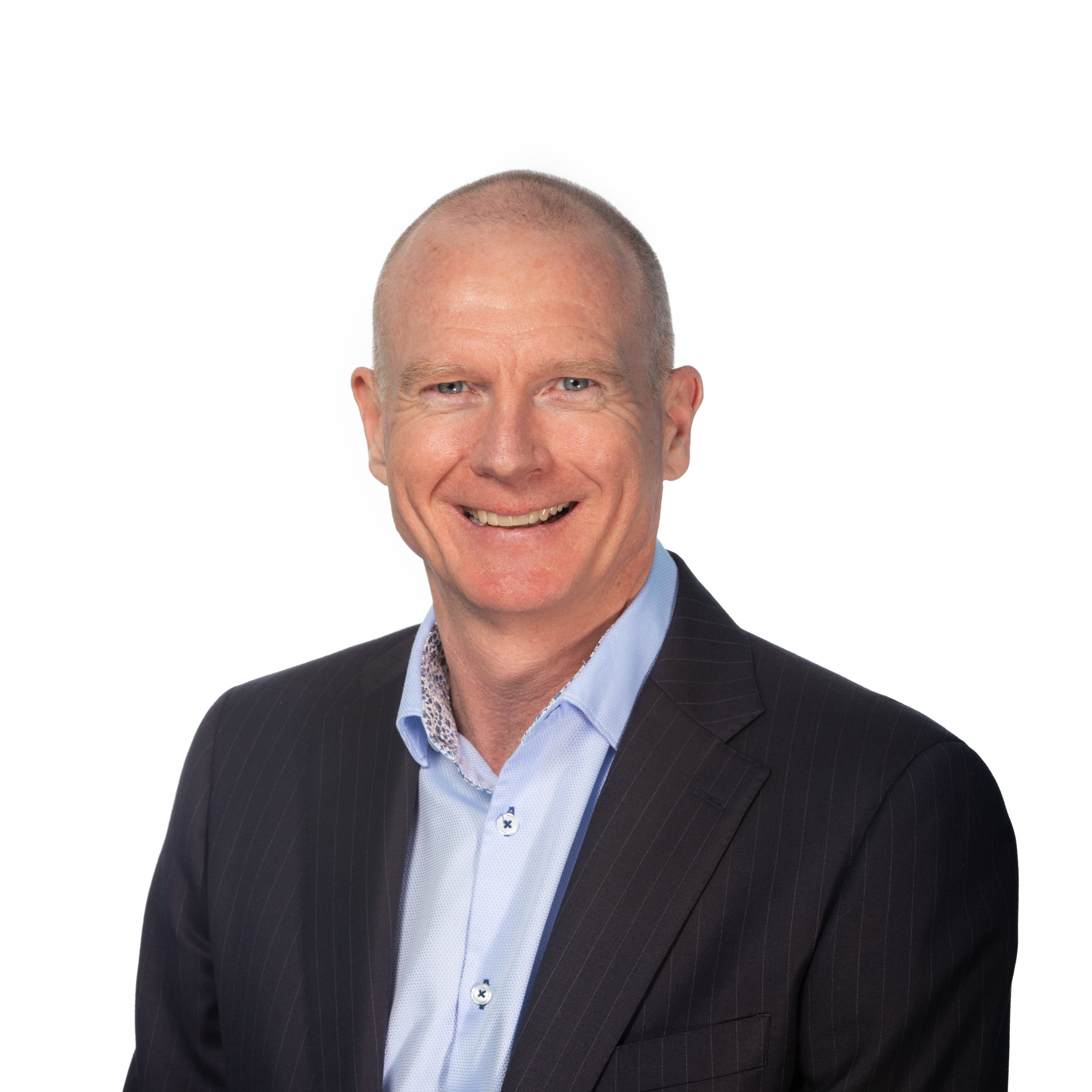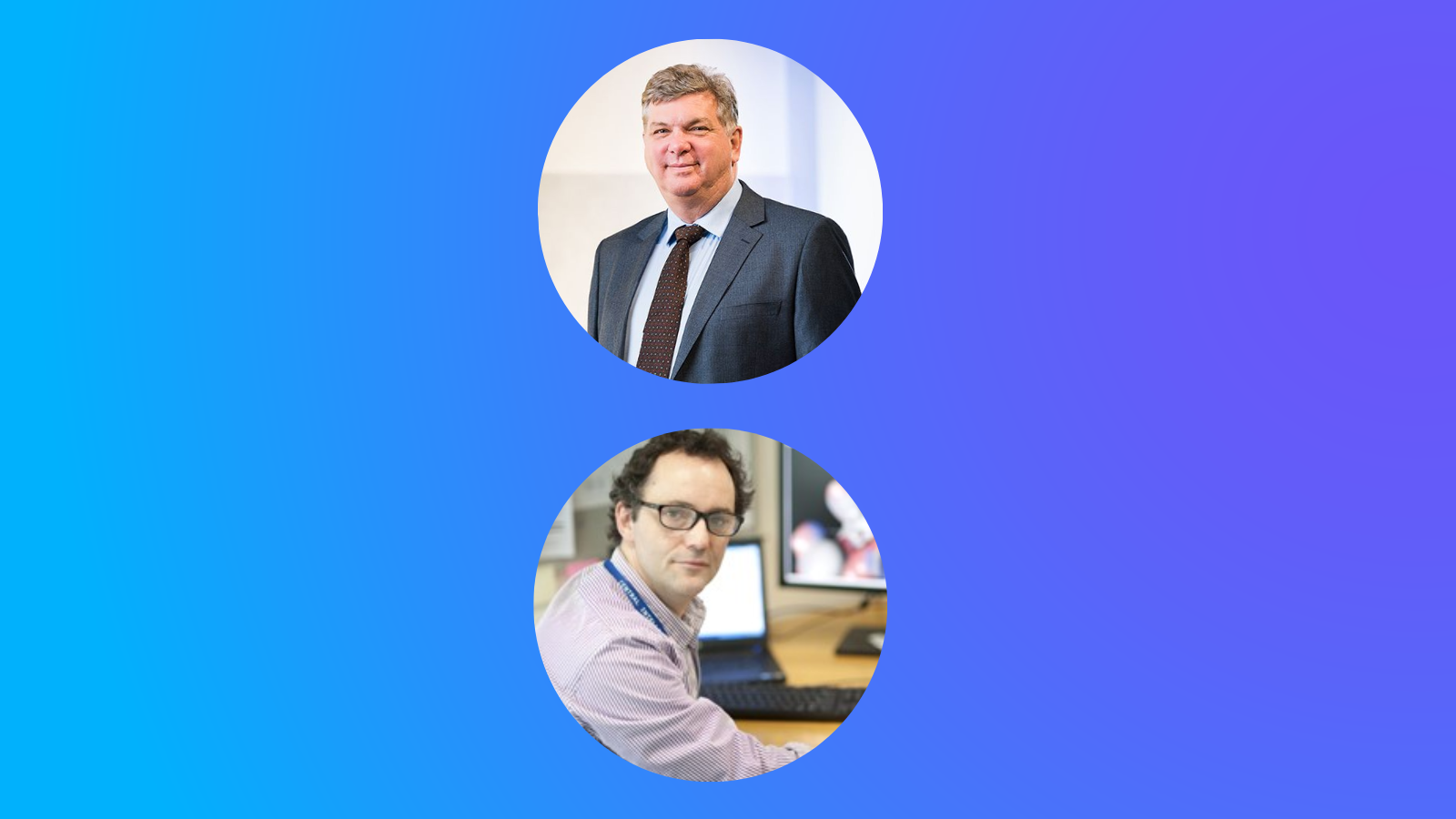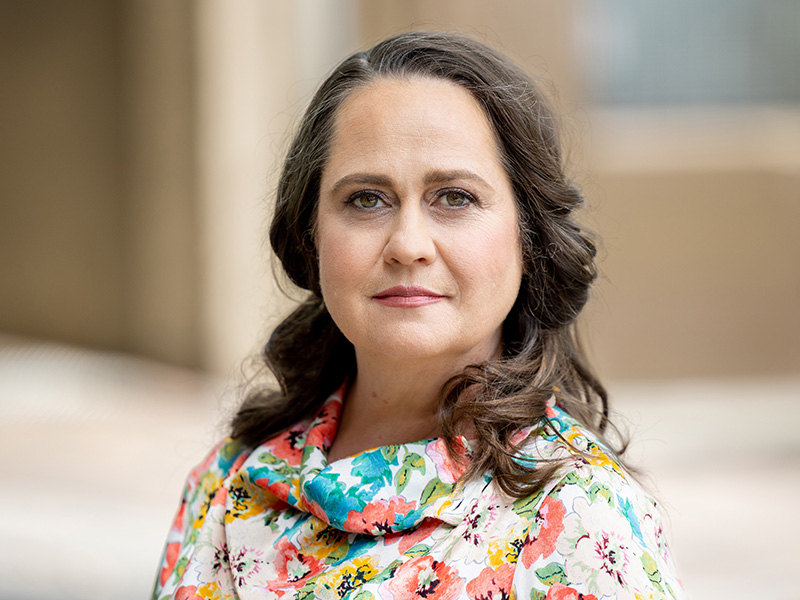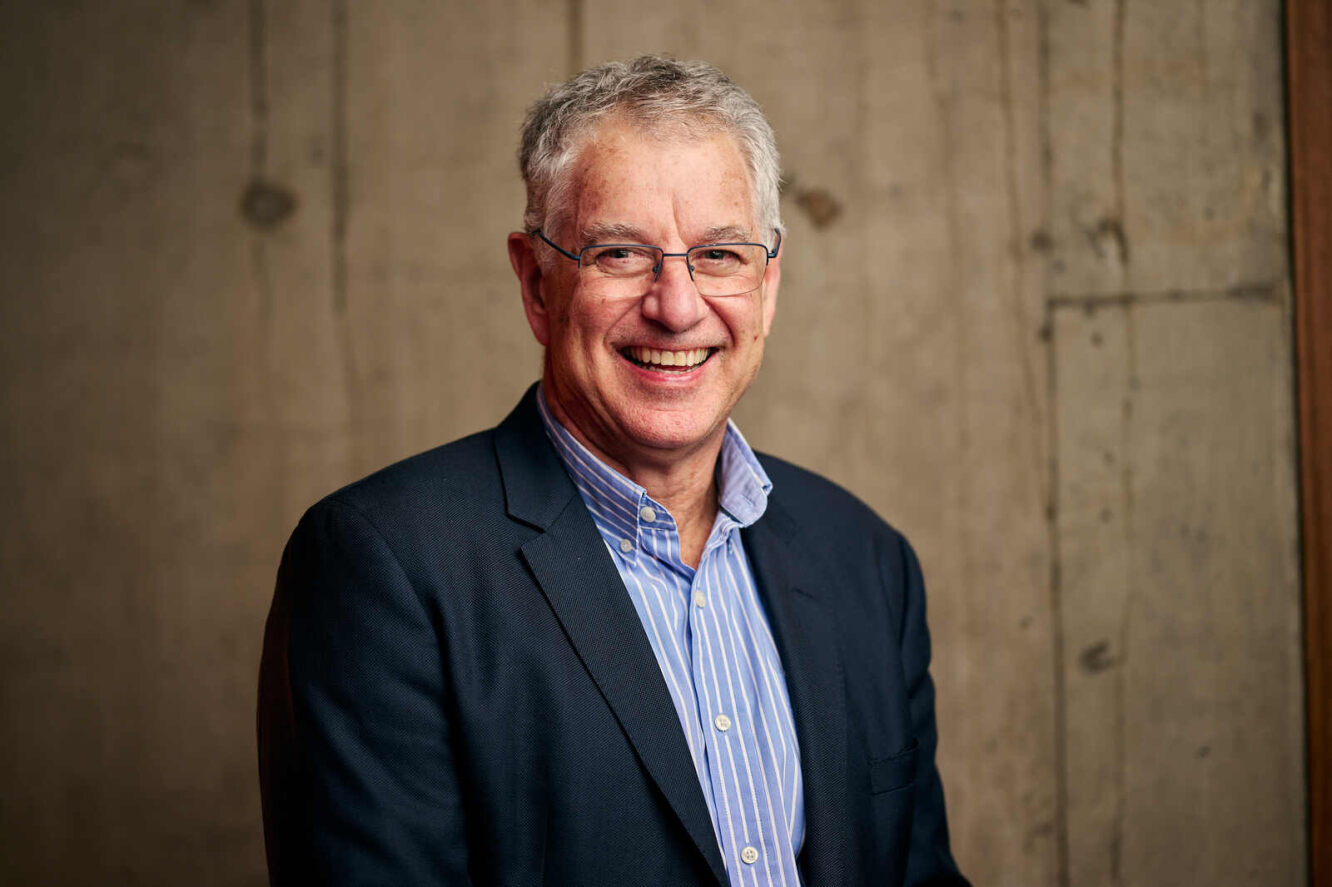Med Tech Talks
Taking affirmative action to achieve equity in science with Professor Anne Kelso AO
At NHMRC, Anne’s key focus areas have been the restructure of the organisation’s grant program, developments in NHMRC’s peer review processes, and progressing initiatives to improve gender equity in health and medical research.
This year, Anne will be stepping down as CEO of NHMRC after eight years. .
In this episode you will hear about:
More information:
Take a look at the NHMRC website.
Professor Anne Kelso AO [00:01:47] Thank you very much, Robert. It’s great to be here and thanks for that very generous introduction.
Robert Klupacs [00:01:52] My pleasure. Annewe love to start at the beginning. You hold a Ph.D. in immunology from the University of Melbourne. What led you to want to do immunology as a career?
Professor Anne Kelso AO [00:02:04] Well, my mother did an MSC in Botany at the University of Melbourne, you know, generations ago and really I think supported my interest in science as quite a young kid. I had a child’s microscope and we looked at protozoa in pond, water under the microscope, and I just remember being very excited about that and starting to be interested in that unseen world. When I was a teenager, I read McFarlane Burnett’s autobiography, Changing Patterns, and I remember thinking, Oh, you know, this career he had had in microbiology and immunology was just so extraordinary. And wouldn’t it be great to have a life like that? Very hard to have a life like Burnett’s. But I was inspired, and so I went to University of Melbourne. I majored in microbiology after a science degree. Then what I really wanted to do was an honours year with Ian Holmes, who’d discovered rotavirus with Ruth Bishop here in Melbourne. And you remember that wonderful story. But Ian wasn’t taking students that year, so immunology was my second choice and I loved it and I and I got stuck there for quite a long time.
Robert Klupacs [00:03:11] Your career trajectory would be the envy of any aspiring professional. Anne, we found this quote. The Australian Academy of Sciences said, Your “contribution to Australian science has been wide ranging and significant”. We only go half an hour for this talk. But just briefly, what have been some of the highlights of your career to date? Because I know there’s many, but what are you most proud of?
Professor Anne Kelso AO [00:03:32] Well, it’s a funny thing because highlights are not necessarily the things that you get cited for in a citation like that one. The highlight for me as a scientist was really finding my own feet and finding my own nation, which I did when I was a post-doc in Switzerland for three years, was a wonderful experience, a fantastic lab, apart from being a beautiful part of the world. And I really just found my question, if you like, which was to understand heterogeneity of function in T cells, and that really was the same through the rest of my research career. So I think that experience of pursuing your own ideas, planning the experiments, doing them, you know, looking at the data, thinking about what to do next, writing it up, talking about it. I just loved all of that. It felt very personal in a, you know, creative way. So that was an ongoing highlight for me, particularly in the years when I was doing my own experiments and sitting there thinking about them as I did them. But the later jobs I had were incredibly interesting as well. And so as director of the CRC for Vaccine Technology, I was really exposed for the first time properly to what research commercialisation meant. My own research was never particularly, you know, it was not commercially oriented and didn’t go down that pathway. But I learnt what it took to commercialise, to engage in negotiations with pharmaceutical companies and to establish a small start up company as we did with some CRC IP. That was a great experience, really a highlight to just get that exposure to a different aspect of the world and really help to broaden my horizons about what what science is for and the paths that it can go down. And then I had a completely different experience when I joined the WHO Centre for Immunology for Influenza, because first of all, the science was fascinating. You’ve got this constantly evolving influenza virus that’s in a dance with the human immune system. But then there are also the public health aspects of that. You know, it’s a significant global public health challenge to protect against influenza. There’s the constant threat that the next pandemic will be an influenza virus. And then there was the experience of working with W.H.O. and understanding getting some insight into what it’s like for an organisation like that to try to manage international collaboration across countries and cultures. So those are not the sorts of things you get cited for, but they are absolute highlights to have those experiences and to get those insights.
Robert Klupacs [00:06:08] So then you did all that, and then you went to the U.S. You must say you’re now stepping down after eight years in the role as CEO of listeners who aren’t familiar with the MHMRC’s work. Can you tell us a little bit about what you think the importance of the agency was about? And as we’re chatting about before, a lot of our scientists just think you were involved in grants, but it’s a hell of a lot more and I think be great to have the time to explain to the rest of our listeners that NHMRC isn’t just about giving money for grants, it’s about a lot more.
Professor Anne Kelso AO [00:06:39] Well, that’s true, Robert and NHMRC has been around for the best part of a century now and it has been giving grants all that time. In fact, some of its first grants were to Burnet and Eccles and and some of our greatest scientists. So that’s a good start. But nowadays it is a lot more than that. Giving of grants to the competitive process, managing all of that is a very big activity. We disburse about $900 million a year and that’s important money, of course, across universities and medical research institutes and hospitals. But the other things we do are develop the ethical ethics and integrity frameworks for research in Australia. Some of that’s done collaboratively with other agencies, but that’s a really important part of NHMRC role. The third thing is the development of health advice and guidelines, evidence based guidelines, particularly in public health and environmental health, like water quality, you know, layered in water, those sorts of issues. And that’s a very important part of what we do, sometimes controversial part of what we do if you read Twitter. And then the fourth thing, which will be the least well known of the activities of NHMRC is that we oversee the regulation of Australian research using human embryos. So a small part of our activity, but a really important one, and particularly at the moment with the introduction of mitochondrial donation and IVF technology, which involves, of course, the use of human embryos. And so some of that activity is very, very interesting and complex at the moment.
Robert Klupacs [00:08:14] Was there any chance you could have extended your tenure? And actually, my say, was eight years enough for you?
Professor Anne Kelso AO [00:08:19] Well, I had a three year appointment and then was just absolutely thrilled to get a five year appointment. When Greg Hunt was minister for Health. But I always thought eight years was, you know, a gift. So it’s a wonderful amount of time. It’s long enough to do something, long enough to see some of the impacts of what’s been done in that time. But in the end, eight years is is, I think, long enough for the agency and probably long enough for me, even if I’m not in a hurry to leave, because it’s important for new people to come in with new ideas. And I think it is important not to stay too long in a job like that.
Robert Klupacs [00:08:56] Has your successor been appointed yet in process? it would certainly a scoop for the public.
Professor Anne Kelso AO [00:09:01] I’m afraid I am not the person to give you the scoop. I’m not involved in the process.
Robert Klupacs [00:09:05] Thanks Anne. Next question for you. So Australian research is we all know, is highly regarded for its quality and underpinned by the NHMRC capacity to fund research projects that we mentioned before and leading to some great discovery. We read in the NHMR’C 2018 report Measuring Up. And this is your quote “Approximately 45% of Australia’s most highly cited publications, defined as the top 1% in the world, are attributed to NHMRC support”. Why do you think Australia has developed such a strong, reliable research sector, particularly at the discovery phase?
Professor Anne Kelso AO [00:09:43] Yeah, I think it is an interesting question and I think it’s a bit of an answer that’s rests in history and then the way the world works today, thinking historically, at least in the sense of Western science. I think Australia benefited from its British forebears with a very strong culture of science and discovery and support for understanding fundamental processes. And then it comes to the handful of people who initiate that in a country. And there are a number. But in my own field of infectious diseases and immunology, Macfarlane Burnet stands out as an absolute giant of the 20th century. And and he really is the reason that we’re so strong in both of those fields today. So it can it goes back to that history. I think, you know, we we used to be a very distant country. Of course, we still far from Europe and Britain and North America. But, you know, the world’s got much smaller. But thinking back, let’s say a century. The world was much larger in the sense that Australian well, Australia really was quite isolated. I don’t think our scientists were isolated. They were in touch with the rest of the world, but they had the benefit of isolation in the sense of being able to think independently and pursue lines of thought which may not have been popular elsewhere. And Burnett may well be a good example of that. So we benefited for quite a long time, I think, from that isolation in that respect. And we had quite a few iconoclasts. But if we think about the world today, you know, we’re all incredibly well connected. And I think the Australian research sector is part of this extremely competitive global community of science. And we’ve got great researchers, we’ve got great research institutes and universities. We’ve had steady support from NHMRC over a very long time. I think that’s been important and I think that just means we’ve got an incredibly engaged and competitive research sector today and all of that adds up to the strengths seen particularly in biomedical science that we have in this country.
Robert Klupacs [00:11:49] And we set up this podcast because part of our things is about research, translation, making the impact from this incredible discovery and, you know, is what you said in your careerIncredible research, very, very highly published. But the translation of that, and you mentioned when you went to the CRC for vaccine, what you learnt about this, the other phase of this. Where do you think Australia struggles? Because you’ve now literally both sides as professional researcher then having to come in and try to commercialise it? What do you think? We we don’t do it as well as say other countries and what can we do different? And then the last question we wanted to ask you, do you think there’s a role that NHMRC could play in that process? Because I know it’s $900 million is a lot of money, but you spread it across a number of people. You’ve lived through all sides of that. So I think your your views would be very important for our listeners.
Professor Anne Kelso AO [00:12:41] Well, I think I can mainly speak to the discovery end of the pipeline, really, and I think it goes back to incentives. We still, even today, despite this strong awareness of the need to take research through to outcomes, whether they’re commercial or through non-commercial pathways. We still have a system here and in other countries that primarily incentivises researchers for their publications in high impact journals, invitations to speak at international conferences, prizes and awards, getting grants so the traditional indicators of academic success still really drive people. And and as long as those are the indicators that will allow people to survive and to progress in their careers, then people will focus on those those things. You will you get what you measure and you get what you reward. So we’re not yet really, I think, rewarding people who put aside, to some extent those other parameters and focus on getting granted patents, progressing their ideas through to the point that they’re commercialise or engaging in commercial collaborations and possibly setting up start up companies. And, you know, eventually one hopes, getting to a marketed product. So I mean that’s a long and complex pathway. And if you’re a university or institute researcher, it’s it’s hard to do and it takes enormous energy and time. I think that the tech transfer offices in universities and institutes make a big difference if they’ve really got the depth and quality of support that researchers need. But in the end, it’s a huge commitment from the researcher themselves. So if we don’t incentivise that, if we don’t give people the recognition and rewards for doing that, then we’re not going to get much of it. From an NHMRC point of view, I think we’re really part of a global push now to to broaden the recognition of wider contributions to society through research. So that includes, of course. Taking research through the commercial pathway for NHMRC. We think more broadly than that because we’re also very interested, of course, in improvements in clinical care and public health, which might not be via a commercial pathway. But all of these different routes to having a societal benefit are really important. We a few years ago when we brought in the changes to the grant program, also brought in changes to track record assessment for a couple of the big schemes and included consideration of people’s past impact from their research in addition to, you know, publications on their quality. So that’s that’s been challenging for the sector. Hard to explain. You know, it’s an evolving space, really, but it is intended very deliberately to shift the incentives to encourage researchers to think more broadly and then to reward them for it of going down, whether it’s a commercial path or a non-commercial path to actual impact on society.
Robert Klupacs [00:15:36] Yeah, I mean, researchers don’t have to be entrepreneurs. One of the things that come out from our interactions on this podcast is a lot of researchers think, Well, if I do commercial research, I’m not going to be creative anymore. I don’t think that’s correct. But I’ll be really interested in your view because I think I think in all phases you need to be creative and it’s fun at any phase, but this seems to be a mindset amongst a lot of the researchers that we’ve spoken to, that once I’m even in the commercial phase, my career stops.
Professor Anne Kelso AO [00:16:03] Yeah, I think you’re right that that’s a that’s a concern. But all aspects of science require creativity and intelligence and deep thought, and everybody brings their own personal intellectual style to that. I think I think one of the things I saw in the CRC that, you know, I wish had really informed my own earlier research much better was the importance of the killer experiment, You know, not the kind of wondering, oh, let’s try this now and let’s see what happens and let’s wander off down a pathway. It is more disciplined in a way, but it really is focusing you on what’s the experiment that will demonstrate the value of this idea or this IP. And I think that’s really, really powerful. And talking with other people about it, you know, in the CRC, we had IP management teams to talk about how to do this work and and you could see the power of bringing people together to to work creatively on those issues to find the best model systems, all those sorts of things. You know, it’s deep science.
Robert Klupacs [00:17:00] You know, the problem is when you do the killer experiment, you design it, you do it, and the results don’t work, then you still got a problem.
Professor Anne Kelso AO [00:17:05] Yeah, well, that’s true, but that isn’t always the end of the story. Of course, you know it’s true.
Robert Klupacs [00:17:11] When there is a shift base a little bit, particularly with your position and you’ve been a very strong advocate for diversity in STEM. In the Jobs and Skills Summit in September 2022 and in recent reports of women’s representation in STEM business leadership, we’ve observed that Australia has made very slow progress towards workplace equity and equality for women and men. What’s your view about we as is a medical research industry can do about this? And can you give some insights about I know you’ve done a lot, but the insights of the NHMRC have been implementing to try to change that.
Professor Anne Kelso AO [00:17:48] Yeah, I think the progress is really distressingly disappointingly slow. And I think what I’d like to see I mean, you know, it’s horrifying to think that we’re still talking about these things, but I’d love to see more normalisation of women in senior positions in whatever aspect of research the rest of the world. And and sadly, I think the only way to achieve this, given history up till now, is affirmative action. It is to not just wait. It’s not going to happen automatically. Despite the tremendous number of women who are being well-educated and and a great pool of talent we have in this country, as every country has. So at NHMRC, we’ve for a long time been interested in how to improve gender equity in the research sector. And this started well before I joined NHMRC. My predecessor, Warwick Anderson, really understood that this was an issue and started work on it. And so there’ve been a whole lot of different initiatives over time. The most important one of the last few years until what we’ve most recently announced, was to have a pot of money that allowed us to go a little bit below the funding cut off to fund more women in some of the schemes where there was a clear discrepancy. And we’re still talking about incredibly closely ranked grant applications. You know, the scores are so clustered. And so we were just going a little bit below the cut-off to be able to give more grants to two women. So that’s been successful to an extent, and it’s meant that we’ve had equal funded rights for men and women broadly across our whole program. And in some of the big schemes since that was introduced about five or six years ago. But where we still see the problem is in the Investigator grants scheme, which was an extension of the former fellowships where we see very few applications from women as you go to the most senior level. So there’s for more than 20 years we’ve had more women than men applying at early career fellowship level, and we’ve hardly shifted the dial of where the cross-over points, where is where you start to get more men and women applying. So something’s not working. So that’s why after a lot of deep consideration, a lot of data analysis and a lot of consultation last year, we’ve taken this step of deciding to have equal numbers of grants to men on the one hand and women and non-binary researchers on the other at the senior levels of the investigator grants scheme. So that is very deliberate affirmative action, which I think will make a difference. And I also hope it will have a ripple effect by encouraging everybody to think more broadly about the value of senior women, as well as recruiting lots of women in at the beginning of the pipeline.
Robert Klupacs [00:20:40] I mean, it’s fantastic. I personally think it’s fantastic because we’ve got a 50/50 ratio here. But you just talk to women in science is a man, you just don’t understand it. What the barriers that they’ve got in men are employing women. They’re writing job ads for women. This is unintended bias, which only now we’re starting to realise. So it’s great what the United Massie’s is doing.
Professor Anne Kelso AO [00:21:00] I think really it is intended to correct for the systemic biases in our society and in the system, and they’re not necessarily biases that individuals express. You know, it’s not necessarily that peer review is bias. We don’t have evidence, really. The peer review is biased, but it reflects the systemic disadvantage that most women face. Not all, but most women, I think, in our society as they try to progress through professional careers.
Robert Klupacs [00:21:28] One of the things we touch on in a little bit about mentors, but one of the things we’ve got to try to get in our own small way here at the institute, trying to get girls, young girls in STEM to think about STEM as a career, because I often think it’s a hard subject and we think that’s great. But what we’ve realised is that you can get the girls to do it and they’re going to be successful. What is missing is there’s not enough teachers of quality at that secondary school level, let alone the university mentorship level. Is there any role that the NHMRC can and should play to make sure the education of our their younger generations is helped to think about that? Or is it just something that we you really can’t influence?
Professor Anne Kelso AO [00:22:08] Well, I think it’s difficult for us to, if you like, invest resources directly into it. But I think that advertising what research is done in Australia promoting, you know, giving profile to women as well as men who excel in this area and do wonderfully exciting research, I hope that that’s an inspiration to all sorts of people. And it’s whether or not they go on as young people to do science themselves. Also whether they simply appreciate how important this is to our society and how we want every sort of person involved in research so that we have a broad range of questions asked in a broad range of ways.
Robert Klupacs [00:22:47] Watch this space in ten years time. I’ll get you back and we’ll have the same discussion and hopefully the needle’s moved.
Professor Anne Kelso AO [00:22:51] Oh boy. I hope so too.
Robert Klupacs [00:22:55] I want to touch a little bit about mentors and just your career. And, you know, I first met you many, many years ago. I’m embarrassed to say. And your work you’ve worked in, the laboratories have done Metcalf, Jack Miller, Gus Nossal. What did you learn from working with those type of people?
Professor Anne Kelso AO [00:23:12] I spent about ten years at way high and about half of that time in Don Metcalf’s lab and half of that time in Gus Nossal’s lab, and of course, interacting with lots of other people around the institute. And Don and Gus were fascinating, really, because both brilliant scientists and giants of Australian science and international science, but so different from each other. And you would know that Robert and Don was the incredibly focussed, passionate about his subject, always a bench scientist, right to the very end of his life. Never wanted to be on a paper unless he’d actually done an experiment in the paper or being part of an experiment in the paper. So just a really rigorous scientist. I learned a lot from seeing that that focus and and the rigour and the questions that he asked. Gus, of course, is a completely different personality. And what I saw from him was, well, first of all, the comparison between the two is that there’s not just one way to be a great scientist or to be a successful scientist who contributes. Everybody brings their own style and there are different ways of doing it. Gus always took such pleasure in other people’s success and still does today and also always, I think, articulated and demonstrated himself the importance of generosity in science. So, you know, a wonderful example of how to behave as a as a scientist, I think I learned a lot from observing both of those people, even if I wasn’t exactly like either of them myself. We each have to find our own way.
Robert Klupacs [00:24:43] Interesting people talk about you the same way, actually, which now we’ve spoken a few others, so you obviously learned moulded, took the good bits and both of them . You guys smoke cigars while looking down the microscope?
Professor Anne Kelso AO [00:24:53] I certainly don’t.
Robert Klupacs [00:24:55] That was Professor Metcalf, used to do that. So they were obviously formative, but there must have been other mentors in your life. The key theme of our podcast is finding out how mean who mentored people, who excited them, and then how they mentor others. So for you, looking back, who do you think you hit the biggest influence in your life?
Professor Anne Kelso AO [00:25:15] Well, the early stages of my career were in a time when we didn’t do formal mentorship business either. But role models are really important. And when I was a Ph.D. student, Nancy Millis in the Department of Microbiology was a wonderful role model, such a passionate enthusiast and a giant. Yeah, And as a lecturer, she actually made industrial microbiology sound really interesting. So seeing seeing somebody like her making a full and interesting contributory life through science was was an important inspiration. And she personally supported me and encouraged me in various ways cause various people whose labs I worked in over time and Don and Gus, each in their different ways, were very powerful mentors and supporters for me in my career. But I think the other people, to mention Fiona Stanley and Jeff Shalem and Fiona, there will be hundreds of people around the country who will credit Fiona with her mentorship and support in their careers. Her husband, Jeff Shalem, was a wonderful immunologist, a microbiologist at the University of Western Australia. And I think really Fiona and Jeff were the people who first made me realise that I could aim higher and it was very important.
Robert Klupacs [00:26:26] So how do you mentor people now? Because I know a lot of people come to your door and you have a lot of time, but I know you give generously of your time. What do you think makes a good mentor?
Professor Anne Kelso AO [00:26:36] I’m not sure that I’m particularly good at it myself, but I think that it’s not about telling people what to do or giving them advice. It’s really about trying to ask the right questions and help people be brave, take risks, think broadly about what they’re doing. I think the reason most people come to talk to me actually is because I’ve changed direction a few times in my career, and very often people want to talk about how did I make those decisions and why? And in a way, because they’re struggling with where their own place is in a scientific career. So perhaps that’s the way I’ve been most useful to people, is perhaps just showing that you can change. Sometimes just take the risk, be brave and do it. If you think that it’s time to to make that shift.
Robert Klupacs [00:27:21] Fantastic. We’re coming to the end. But I know a lot of people want to know what you’re going to do. Post your retirement from the March embassy. But but looking back, you know, you’re now coming to the end of the career partly, you know, there’s a lot you’re going to do. But if you could go back now and see and also at the age of 20, what would you say to her?
Professor Anne Kelso AO [00:27:40] I think at 20 I was braver than I was at 25 or 30 perhaps. And and if I so if I look back to the early stages of my research career, there are two things that I wish I’d understood. And one, there was a cartoon I saw, you know, maybe 20 years ago, but it really spoke to me. And it’s a man at a shop counter saying, I’d like to buy some doubt cancelling headphones. And so one of the things I wish is that back when I was starting my career in a postdoc and trying to make my own my way was just to have had those doubt cancelling headphones to have been had more confidence I think in in what I could do and and what I should try. So I think taking risks is, can be very scary at the time. But the biggest rewards come from taking those risks. I think the second thing I’ve needed to learn was to ask for help when you need it. And there’s so much emphasis on people demonstrating their independence as a researcher. But it can give you what I think is a false impression that you have to do everything yourself and you have to have all the answers yourself. And so I needed to learn that that was not the case, that you make better decisions when you discuss them with people, when you seek advice, or if you’re in organisational roles, as I’ve been for a little while now, then teamwork and team decision making is more likely to be effective than the hierarchical boss needs to know everything type of decision making. So those are my two lessons about cancelling headphones and ask for help.
Robert Klupacs [00:29:11] What a fantastic way to end the talk. So and we’ve reached the end of the podcast today and I have to thank you so much for giving us your time and for sharing your insights into our industry. The ANC must see how it can improve Taking risks. To all our listeners, I hope you enjoyed listening and I look forward to introducing you to our guests in future podcasts. There are links to everything we talked about in the show notes and we look forward to welcoming you next time.
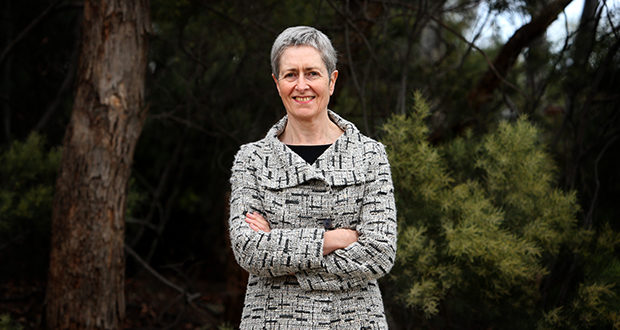
Professor Anne Kelso AO, CEO of the NHMRC.
Listen to other episodes of Med Tech Talks here

